
Fungal diseases represent a persistent threat to crops, causing significant economic losses and impacting food security. They occur when fungal spores germinate and penetrate a plant. The fungus grows in, on and through the plant and can reproduce by releasing spores that can lead to secondary infections.
Leonard Oberholzer, corn go-to-market lead for Africa at Bayer Crop Science, told Farmer's Weekly that for fungi to infect the crop, the fungi (pathogen), crop (host) and a favourable environment must be present at the same time. This phenomenon is known as the disease triangle.
To reduce the probability of fungal infections, integrated pest management (IPM) is handy to eliminate the host, manipulate the environment or reduce pathogens to help prevent their future spread. An example is alternating between crops (crop rotation), planting resistant cultivars, and managing the amount of crop residue left on the soil before planting a new crop.
CONTACT VS SYSTEMIC
Fungicides are broadly categorised based on their mode of action (MOA), encompassing two main types: contact and systemic. Contact fungicides primarily act on the surface of plant tissues, forming a protective barrier that inhibits fungal spore germination and growth. They do not penetrate plant tissues and instead provide localised protection, making them effective against foliar diseases and superficial infections. They offer immediate yet temporary protection as they can be washed away by rainfall or degraded by sunlight.
This story is from the July 26, 2024 edition of Farmer's Weekly.
Start your 7-day Magzter GOLD free trial to access thousands of curated premium stories, and 9,000+ magazines and newspapers.
Already a subscriber ? Sign In
This story is from the July 26, 2024 edition of Farmer's Weekly.
Start your 7-day Magzter GOLD free trial to access thousands of curated premium stories, and 9,000+ magazines and newspapers.
Already a subscriber? Sign In

Agripreneur wins top award for butternut coffee
Bloemfontein-based agripreneur Chantelle de Bruyn has achieved global recognition.
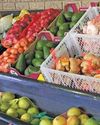
Final fresh produce inquiry pins low level of transformation on farming environment
The Competition Commission released its final report on the Fresh Produce Market Inquiry in mid-January, maintaining that transformation in the industry was being impeded by a lack of support for emerging farmers.

Illegal fishing in Australia reveals market gap for farmed sea cucumber
Illegal fishing practices in Australia have revealed a large market opportunity for sea cucumber farming.

An introduction to the Ford Ranger Tremor
In December 2024, the CAR magazine team received the Ford Ranger Tremor to accompany them through the festive season and into the new year. Oliver Keohane looks at what the Tremor is all about.

A farmer's experience with bush encroachment
Farmer David Addenbrooke has worked in the Zimbabwean beef industry for around four decades. Here, he relates his experience with bush encroachment and offers farmers some advice on battling this scourge.
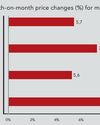
Good rains boost SA's summer grain crop prospects
This week, Absa AgriBusiness analyses several market dynamics and shares its expectations for local grain and oilseed prices over the coming months.
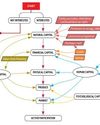
A self-help tool for getting young people engaged in agriculture
The active engagement of the youth in agriculture is pivotal to the sustainability and growth of the sector. Empowering them with the necessary support is key to nurturing future farmers who are equipped to overcome future challenges like the effects of climate change.Dr Primrose Madende, researcher at the Department of Agricultural Economics at the University of the Free State
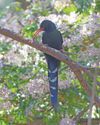
Rallying to the cackle of this raucous bird
The gregarious and territorial Green Wood-hoopoe, also known as the Red-billed Wood-hoopoe, is extremely vocal and is often heard before it is seen. And for very good reason,

SA coffee lovers can expect price increase
South African coffee prices are expected to spike sharply in the foreseeable future because of failed crops in the country’s main importing countries: Brazil and Vietnam.
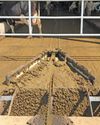
Paving the way for a greener dairy industry
The dairy industry is often criticised for its environmental impact, but a new innovation called DESTiny aims to empower farmers to take control of their carbon footprints. Riana Reinecke, the tool's developer, explained to Glenneis Kriel how it works and how farmers can benefit from it.